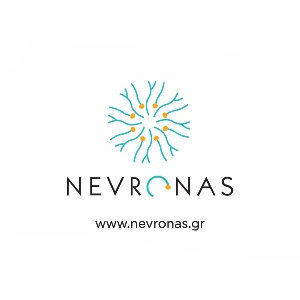Βραβείο 2021

Βραβείο 2022

Στρατηγικός συνεργάτης

Υποστηρικτές Επικοινωνίας


Open access article: (https://journals.sagepub.com/doi/full/10.1177/13623613221081189 )
Abstract
Autistic young people in mainstream schools often experience low levels of peer social support, have negative perceptions of their differences and feel disconnected from their school community. Previous research findings have suggested that encouraging autistic young people to explore autistic culture and spending time with autistic peers may be associated with more positive outcomes. Autism-specific peer support is a framework that may support this process. Thirteen participants (eight male/five female) completed semi-structured interviews, exploring the idea of autism-specific peer support within mainstream schools and the practicalities of how it may work within a school setting. Thematic analysis was applied, and three themes are reported: (1) neurodiversity and an ethos of inclusivity, (2) flexibility and (3) benefits and challenges of embedding peer support in the wider school community. The idea of autism-specific peer support for autistic pupils in mainstream secondary schools was generally positively received. Peer support may provide a unique opportunity for autistic pupils to interact in a natural, comfortable way; share useful strategies; and build their identities. Nevertheless, careful design, training and ongoing support, alongside awareness of the rights, needs and preferences of individual pupils involved are likely to be crucial in ensuring the success of any peer support programme.
Lay abstract
Autistic young people may struggle in mainstream schools and feel disconnected from their peers and their school. We know that autistic adults can benefit from spending time with other autistic people, but we don’t know if this is the case for younger autistic people. We conducted interviews with 13 autistic young adults in the United Kingdom who recently left mainstream schooling. We asked them if they would have been interested in being involved in autistic peer support when they were at school, and if so, what that peer support should look like. Results indicated that autistic young people were enthusiastic about the idea of peer support. They thought it was important that peer support was flexible to suit their needs at different times, as well as inclusive, positive, and embracing neurodiversity. They also discussed the potential benefits and difficulties of having a peer support system within a school setting. This adds to the growing body of research on the potential benefits of autistic-autistic interactions on autistic people’s well-being and sense of belonging. Findings can be used to help design pilot peer support projects in schools that can be tested to see how effective they are.
Citation: Crompton CJ., Hallett S., Axbey H., McAuliffe C., Cebula K., (2023). 'Someone like-minded in a big place': Autistic young adults' attitudes towards autistic peer support in mainstream education. Autism, ;27(1):76-91. doi: 10.1177/13623613221081189.